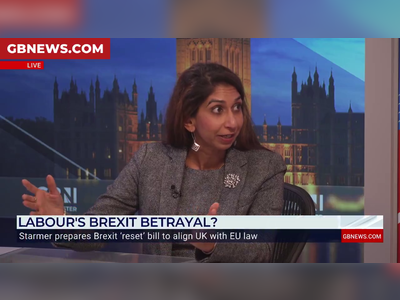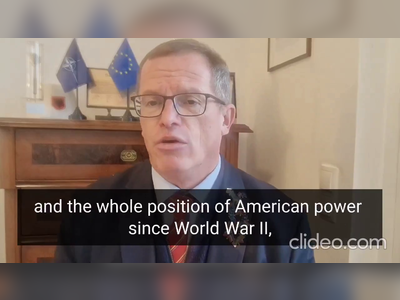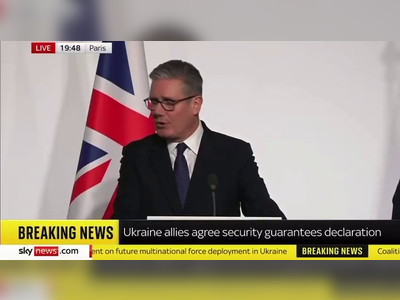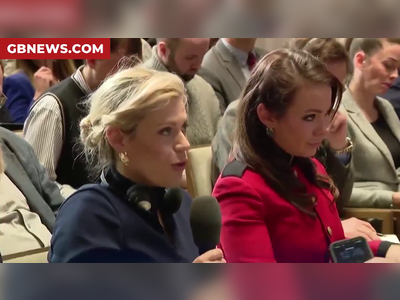Georgia's Democratic Challenge: Balancing Between Europe and Sovereignty
In the midst of internal unrest, Georgia encounters a pivotal moment in its quest for democracy and European integration.
In the historic city of Tbilisi, the streets come alive with protests as thousands of citizens express their discontent over a government decision that has shaken the nation.
With negotiations to join the European Union suspended, the atmosphere is fraught with dissatisfaction as the public feels a crucial European future is slipping away.
At the same time, the Georgian president has inflamed the situation by labeling the government as illegitimate, alluding to electoral manipulation.
This unrest highlights Georgia’s ongoing struggle between the pursuit of democratic advancement and the desire for self-reliant stability.
Protesters, with banners held high, perceive the suspension as a betrayal of hopes for a future aligned with Europe—a vision shared by many Georgians who seek prosperity and stability through integration.
Conversely, the government argues that its cautious approach is aimed at preserving national sovereignty, wary of the compromises that come with European Union membership.
However, the government's forceful response, including the use of water cannons and teargas on its people, raises serious questions about its dedication to the democratic principles championed by the European Union.
This situation transcends a mere domestic disagreement and reflects the broader challenges a nation faces when aspiring to be part of a wider European context.
To fully understand the complexity, one must consider Georgia’s historical backdrop.
After decades under Soviet rule, issues of legitimacy and public voice hold significant weight in the national mindset.
The alleged electoral manipulations strike at the core of this identity, prompting calls for transparency and accountability.
Critics might contend that the government’s caution is warranted, citing the European Union's own troubles, such as Brexit and internal conflicts.
From this viewpoint, Georgia may aim to maintain its independence and address internal issues before committing to external obligations that could bring additional pressures.
Thus, Georgia stands at a crossroads, reminiscent of Margaret Thatcher’s warning about the perils of indecision in the face of competing forces.
By distancing both its pro-European supporters and those favoring an independent course, the government risks isolating itself at a crucial moment.
The outcome of this crisis will undoubtedly shape Georgia's identity on the world stage.
It requires a nuanced approach, one that respects sovereignty while embracing democratic values.
For those watching from afar, this is a call for awareness and engagement in the conversation.
Ultimately, the path Georgia chooses—toward European partnership or sovereign self-determination—may depend on global perception and support.
With negotiations to join the European Union suspended, the atmosphere is fraught with dissatisfaction as the public feels a crucial European future is slipping away.
At the same time, the Georgian president has inflamed the situation by labeling the government as illegitimate, alluding to electoral manipulation.
This unrest highlights Georgia’s ongoing struggle between the pursuit of democratic advancement and the desire for self-reliant stability.
Protesters, with banners held high, perceive the suspension as a betrayal of hopes for a future aligned with Europe—a vision shared by many Georgians who seek prosperity and stability through integration.
Conversely, the government argues that its cautious approach is aimed at preserving national sovereignty, wary of the compromises that come with European Union membership.
However, the government's forceful response, including the use of water cannons and teargas on its people, raises serious questions about its dedication to the democratic principles championed by the European Union.
This situation transcends a mere domestic disagreement and reflects the broader challenges a nation faces when aspiring to be part of a wider European context.
To fully understand the complexity, one must consider Georgia’s historical backdrop.
After decades under Soviet rule, issues of legitimacy and public voice hold significant weight in the national mindset.
The alleged electoral manipulations strike at the core of this identity, prompting calls for transparency and accountability.
Critics might contend that the government’s caution is warranted, citing the European Union's own troubles, such as Brexit and internal conflicts.
From this viewpoint, Georgia may aim to maintain its independence and address internal issues before committing to external obligations that could bring additional pressures.
Thus, Georgia stands at a crossroads, reminiscent of Margaret Thatcher’s warning about the perils of indecision in the face of competing forces.
By distancing both its pro-European supporters and those favoring an independent course, the government risks isolating itself at a crucial moment.
The outcome of this crisis will undoubtedly shape Georgia's identity on the world stage.
It requires a nuanced approach, one that respects sovereignty while embracing democratic values.
For those watching from afar, this is a call for awareness and engagement in the conversation.
Ultimately, the path Georgia chooses—toward European partnership or sovereign self-determination—may depend on global perception and support.
AI Disclaimer: An advanced artificial intelligence (AI) system generated the content of this page on its own. This innovative technology conducts extensive research from a variety of reliable sources, performs rigorous fact-checking and verification, cleans up and balances biased or manipulated content, and presents a minimal factual summary that is just enough yet essential for you to function as an informed and educated citizen. Please keep in mind, however, that this system is an evolving technology, and as a result, the article may contain accidental inaccuracies or errors. We urge you to help us improve our site by reporting any inaccuracies you find using the "Contact Us" link at the bottom of this page. Your helpful feedback helps us improve our system and deliver more precise content. When you find an article of interest here, please look for the full and extensive coverage of this topic in traditional news sources, as they are written by professional journalists that we try to support, not replace. We appreciate your understanding and assistance.











